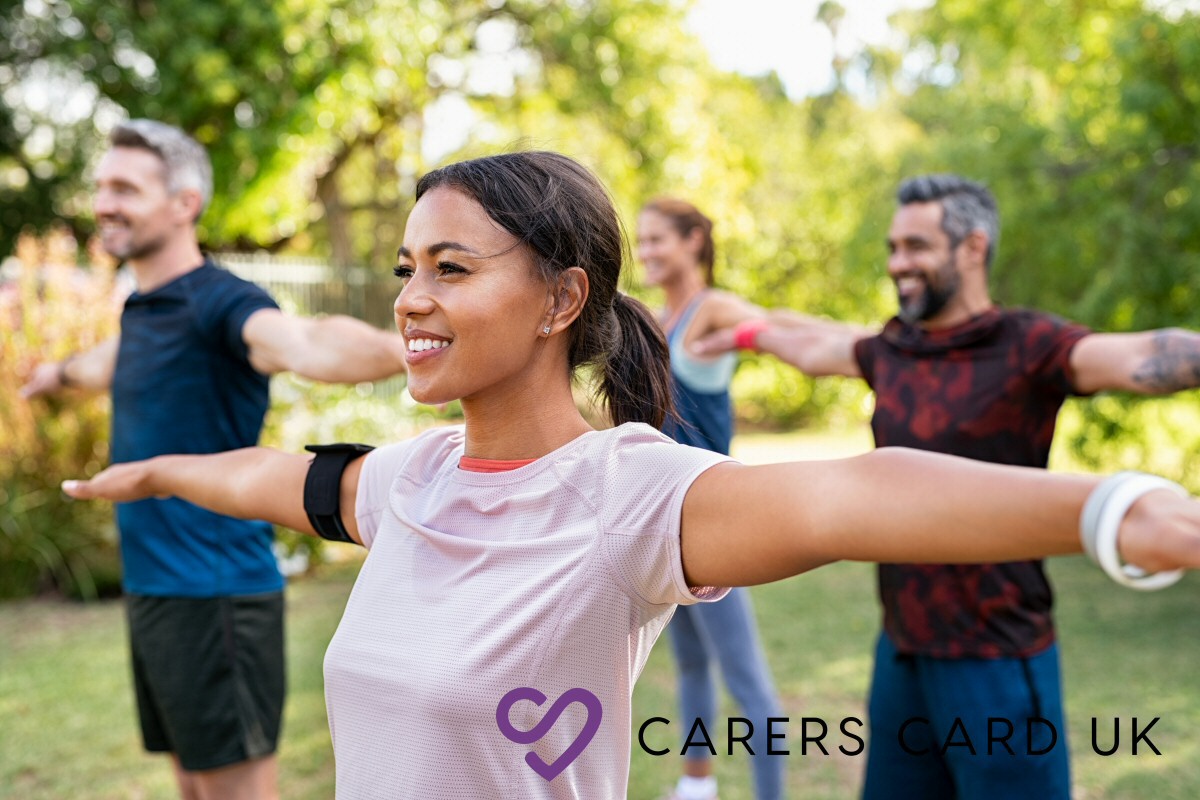The Vital Role of Exercise in Caregiving
Caring for someone in need is a noble and often demanding responsibility. Whether you're looking after a family member, a friend, or a client, the role of a caregiver requires physical stamina, emotional resilience, and mental clarity.

In the midst of your caregiving duties, it's easy to overlook your own health and wellbeing. However, incorporating regular exercise into your routine isn't just beneficial—it's essential for maintaining your vitality and effectiveness as a caregiver. In this article, we'll explore the significant reasons why prioritising exercise is crucial when caring for someone else.
Physical Health
Regular exercise is fundamental for maintaining good physical health. As a caregiver, you may find yourself performing tasks that require strength, flexibility, and endurance. Lifting, assisting with mobility, and providing personal care all demand physical exertion. Engaging in exercise helps you build and maintain muscle strength, improve cardiovascular health, and enhance overall physical fitness. By strengthening your body through exercise, you reduce the risk of injury and fatigue, allowing you to carry out caregiving tasks more safely and effectively.
Stress Reduction
Caregiving can be emotionally taxing, often accompanied by stress, anxiety, and feelings of overwhelm. Exercise is a powerful antidote to stress, as it triggers the release of endorphins—natural mood-lifters and stress-relievers—in the brain. Regular physical activity helps alleviate tension, improve mood, and promote relaxation. Whether it's going for a brisk walk, practicing yoga, or hitting the gym, carving out time for exercise provides a valuable opportunity to recharge both your body and mind amidst the demands of caregiving.
Enhanced Mental Wellbeing
The mental demands of caregiving, including decision-making, problem-solving, and managing complex emotions, can take a toll on your mental wellbeing. Exercise has been shown to have profound benefits for mental health, including reduced symptoms of depression, anxiety, and cognitive decline. Physical activity stimulates brain function, increases cognitive flexibility, and enhances memory and concentration—all of which are essential for effective caregiving. By prioritising exercise, you not only safeguard your mental health but also maintain the cognitive sharpness needed to navigate the challenges of caregiving with clarity and resilience.
Increased Energy Levels
Caregiving is often a round-the-clock responsibility, requiring you to be available and alert at all hours. However, the demands of caregiving can leave you feeling drained and depleted, especially if you neglect your own needs. Exercise is a natural energy-booster, increasing blood flow, oxygen delivery, and nutrient circulation throughout the body. Engaging in physical activity boosts energy levels, reduces fatigue, and enhances overall vitality. By incorporating exercise into your routine, you replenish your energy reserves, ensuring you have the stamina and endurance to meet the demands of caregiving with vigour and enthusiasm.
Improved Sleep Quality
Quality sleep is essential for physical health, mental wellbeing, and overall functioning. However, the stress and demands of caregiving can disrupt sleep patterns, leading to insomnia, restless nights, and daytime fatigue. Exercise plays a crucial role in promoting restful sleep by regulating circadian rhythms, reducing anxiety, and promoting relaxation. Engaging in regular exercise can help you fall asleep more easily, experience deeper and more restorative sleep, and wake up feeling refreshed and rejuvenated. By prioritising exercise, you optimise your sleep quality, ensuring you're well-rested and ready to face the challenges of caregiving each day.
Positive Role Modelling
As a caregiver, you serve as a role model for the person you're caring for, demonstrating the importance of health and self-care. By prioritising exercise and making it a regular part of your routine, you set a positive example and inspire those around you to prioritise their own health and wellbeing. Your commitment to exercise sends a powerful message about the value of self-care and the importance of investing in one's physical and mental health.
In conclusion, exercise is not a luxury but a necessity for caregivers. By prioritising regular physical activity, you enhance your physical health, reduce stress, boost mental wellbeing, increase energy levels, improve sleep quality, and set a positive example for those you care for. Incorporating exercise into your routine doesn't have to be complicated or time-consuming - it can be as simple as taking a daily walk, practicing yoga at home, or engaging in activities you enjoy. Remember, by nurturing your own health and wellbeing, you're better equipped to provide the care and support your loved ones need.
Posted: 07/07/2025
